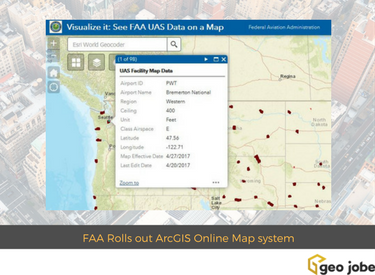
Drone Operator Testing Process
Advancements in drone technology necessitate rigorous testing processes for operators to ensure safe and effective use. Testing encompasses several distinct areas, each crucial for comprehensive competence.
Understanding Regulations
Drone regulations vary by country and may include no-fly zones, altitude restrictions, and specific operational guidelines. Operators begin by familiarizing themselves with these rules. Exams often include multiple-choice questions focusing on airspace classifications, privacy laws, and operational limitations.
Initial Knowledge Test
The first step involves a written knowledge test. Topics include weather patterns, emergency procedures, and navigation. Study materials provided by aviation authorities help candidates prepare. Passing this test is mandatory before any practical assessment can take place.
Simulator Training
Hands-on experience often starts with flight simulators. Simulators offer a safe environment to practice without the risk of damaging a real drone. Operators learn basic maneuvers, such as takeoff, landing, and hovering. Advanced simulations might include obstacle courses and emergency scenarios. This phase develops muscle memory and hones quick decision-making skills.
Field Training
Field training sessions follow simulator practice. Instructors guide operators through real-world environments. Initial flights are supervised, allowing for immediate feedback. Operators practice basic controls, camera work, and maintaining visual line of sight. Progressive training includes complex tasks like flying in urban areas or conducting search and rescue missions. Practical experience in various conditions, such as wind or rain, prepares operators for diverse challenges.
Scenario-Based Testing
Scenario-based testing evaluates an operator’s ability to handle specific tasks. For example, operators might be given a mission to inspect a bridge for structural damage. They must plan the flight path, ensure safety protocols, and capture necessary data. Realistic scenarios ensure that testing aligns with common operational tasks.
Emergency Procedures
Testing includes emergency procedures such as battery failure, signal loss, or motor malfunction. Operators are assessed on their promptness and effectiveness in managing these situations. Successfully navigating emergencies illustrates their readiness to respond to unexpected challenges.
Proficiency in Maintenance
Drone operation isn’t solely about flying; maintenance is also critical. Operators are tested on their knowledge of routine checks and minor repairs. Knowing how to replace propellers, update firmware, and conduct pre-flight inspections ensures drones remain in top condition. Maintenance training also focuses on recognizing wear and tear that could lead to potential issues.
Ethical and Privacy Considerations
Given the potential for misuse, ethical considerations form a substantial part of the testing process. Operators are trained on respecting privacy, understanding data protection laws, and the ethical implications of drone use. Testing scenarios might include navigating around private property or capturing video while maintaining legal boundaries. Adherence to ethical standards is essential for responsible operation.
Certifications and Licensing
Upon successful completion of tests and training, operators receive certification. This certification is often mandatory for commercial drone use. In some regions, operators must also obtain a specific license, akin to a driver’s license but for drone operation. Licensing ensures that operators are recognized as qualified professionals.
Ongoing Education
The field of drone technology evolves rapidly. Continuous education keeps operators up-to-date with the latest advancements. Many regulatory bodies require periodic re-testing or additional coursework. Staying informed about new regulations, technological upgrades, and industry best practices is essential for long-term proficiency.
Utilizing Feedback
Constructive feedback is integral to the testing process. Instructors provide detailed critiques of performance, highlighting strengths and areas for improvement. Operators are encouraged to reflect on this feedback and incorporate it into their practice. This iterative process helps build stronger, more competent operators over time.
Record-Keeping
Maintaining accurate records of flight hours, training sessions, and maintenance activities is crucial. These records demonstrate compliance with regulatory requirements and help track an operator’s progress. Proper documentation supports continuous learning and accountability.
Specialized Training
Some operators may require specialized training for specific tasks or industries. For example, agricultural drone operators need to understand crop monitoring techniques. Search and rescue operators learn tactics for locating individuals in various terrains. Industry-specific training ensures operators can meet unique demands and perform specialized functions efficiently.
Community and Networking
Engaging with the broader drone community offers additional learning opportunities. Networking with other operators, participating in workshops, and attending industry conferences provide exposure to diverse perspectives and experiences. Building a professional network supports knowledge-sharing and collaborative growth.
“`



